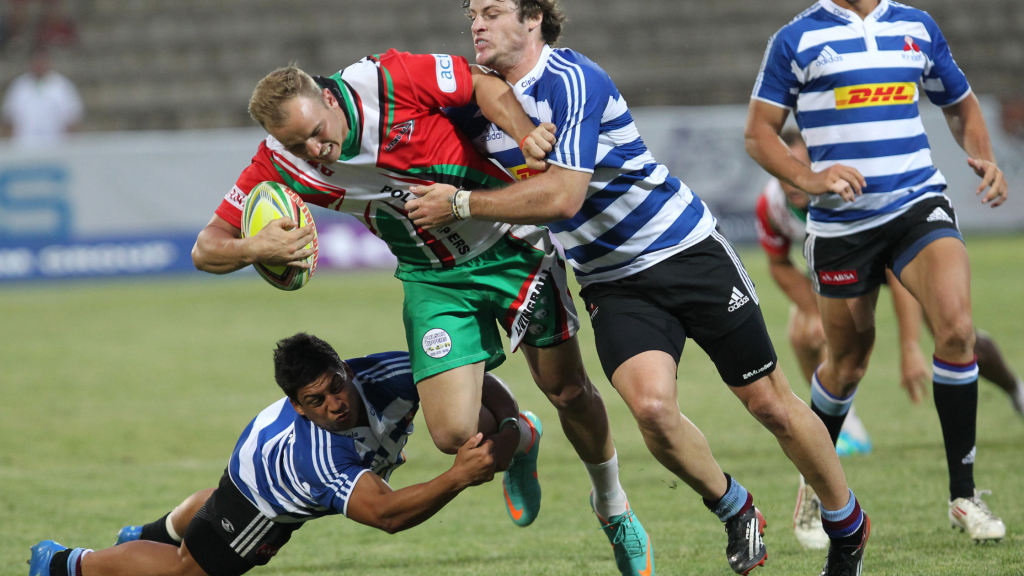Rugby in South Africa holds a special place, weaving a tale of hope, unity, and national pride. As the world continues to watch the Springboks, South Africa’s national rugby team, their performance isn’t just a matter of wins and losses; it’s a reflection of the country’s spirit. In this extended blog, we take a deeper dive into the current state of rugby in South Africa, critically analysing the Springboks’ recent performances, their future, and how rugby impacts the nation’s tourism, culture, and economy.

The Springboks: More Than a Team, A National Symbol
Rugby is more than a game in South Africa—it’s a historical narrative. The Springboks’ iconic 1995 Rugby World Cup win remains etched in the memory of many South Africans, serving as a symbol of post-apartheid unity. The image of Nelson Mandela handing the trophy to then-captain Francois Pienaar is a defining moment in South African history, representing the healing of a divided nation.
Fast forward to 2019, when Siya Kolisi captained the Springboks to their third Rugby World Cup victory. As the first Black captain of the Springboks, Kolisi’s triumph was not just a sporting achievement, but a symbol of the progress made in integrating South Africa’s diverse population into all aspects of life, including rugby. His leadership style and his story have made Kolisi a global icon, reflecting how far rugby and South Africa have come in overcoming racial and social divisions.
In the years following their World Cup victories, the Springboks have consistently been among the top rugby nations in the world. Their triumph in the 2021 British and Irish Lions series and strong performances in the Rugby Championship have shown their ability to rise to the occasion against some of the world’s best rugby nations. However, the journey hasn’t been without challenges, as transitions in team structure, evolving strategies, and the global nature of the sport demand constant adaptation.
Tactical Evolution: Breaking Down the Springboks’ Style of Play
A thorough analysis of the Springboks’ performance must include their tactical evolution. Traditionally, South Africa has been known for its physical, forward-dominant rugby. The “bomb squad”—the Springboks’ renowned group of replacements—epitomises the power and depth of South African rugby, coming off the bench to dominate the last 20 minutes of games.
The Springboks have embraced a tactical kicking game that relies on relentless pressure and defensive dominance. Players like Faf de Klerk and Handré Pollard are instrumental in executing this style, employing pinpoint kicks to win territorial battles. Their defence, led by the likes of Pieter-Steph Du Toit and Eben Etzebeth, has often been called a brick wall, frustrating even the most skilled opposition.
However, modern rugby demands versatility. The Springboks have incorporated a more expansive style into their gameplay, evidenced by electric runners like Cheslin Kolbe and Makazole Mapimpi. Kolbe, with his footwork, and Mapimpi, with his finishing ability, have become cornerstones of South Africa’s wide game. This balance between power and flair makes the Springboks one of the most well-rounded teams in the world.
Yet, challenges remain. Recent losses in the Rugby Championship and the 2023 World Cup warm-up games have exposed some weaknesses in consistency and depth, particularly in the backline. The Springboks will need to refine their balance between a forward-heavy game and a more dynamic approach to stay ahead of the competition.

Grassroots Development: Building the Next Generation of Springboks
One of the keys to the Springboks’ continued success lies in the development of young talent. South Africa boasts one of the world’s richest rugby cultures, with elite schools and academies producing top-tier players year after year. Schools like Grey College, Paarl Boys’ High, and the Bishop’s Diocesan College have long been the breeding grounds for future Springboks.
The Currie Cup and Varsity Cup competitions offer additional platforms for young talent to shine, while provincial rugby remains a vital stepping stone to international success. However, the integration of players from historically disadvantaged communities remains a critical challenge. To truly unlock the future potential of South African rugby, more must be done to ensure inclusivity at the grassroots level.
Investing in rugby infrastructure across all provinces in South Africa can help bridge this gap. Efforts are being made to increase rugby’s reach into rural and township areas, ensuring that the next generation of Springboks comes from a more diverse background, reflecting the country’s demographics. It’s vital for rugby administrators to continue to support these development programs, offering scholarships, better coaching, and greater access to rugby facilities.
Rugby and South African Tourism: The Perfect Pairing
Tourism in South Africa benefits significantly from the country’s rugby legacy. Fans travel from all corners of the world to watch the Springboks in action, but they don’t stop there. The country’s vibrant tourism scene offers a wide array of attractions that can be seamlessly integrated with a rugby experience.
For instance, a rugby fan visiting Cape Town for a Springboks match can combine the game with a full day private Cape Point and Peninsula tour, exploring the dramatic coastal scenery and historic sites of the area. Those looking for a safari adventure can embark on a Kruger National 2 day tour, offering the chance to see South Africa’s famous wildlife in one of the country’s premier national parks.
In Johannesburg, a Johannesburg Soweto tour or full day Soweto tour and Apartheid Museum package provides deep insight into the country’s cultural and historical heritage. Travellers can explore the city’s vibrant neighbourhoods and reflect on the history of apartheid while celebrating the sporting unity that rugby represents.
For those with a passion for nature and wildlife, Kruger Park tours from Johannesburg offer a perfect way to extend a rugby trip into the bush. Combining sport with leisure is a key aspect of South African tourism, where a 2 day safari from Johannesburg or even a longer 15 day overland tour can turn a rugby getaway into the trip of a lifetime.
The connection between rugby and tourism is further bolstered by the offerings of tour companies like Africa Moja Tours, which provide an array of exciting experiences for rugby fans. From cape town tours packages to safari Cape Town trips, the synergy between sport and travel enhances South Africa’s appeal as a global destination.

The Provincial Rugby System: A Crucial Pillar
Provincial rugby in South Africa plays a pivotal role in developing future Springboks and maintaining the country’s high rugby standards. Teams like the Blue Bulls, Sharks, and Stormers have long been powerhouses in South African rugby, feeding talent into the national team. The success of these provincial teams in competitions like the United Rugby Championship (URC) and domestic tournaments like the Currie Cup ensures a constant flow of new talent for the Springboks.
The provincial rugby system also plays a key role in spreading the game across different regions. Provinces in South Africa like Gauteng and Western Cape boast some of the country’s strongest rugby traditions, with regular local derbies drawing massive crowds. Meanwhile, lesser-known provinces are starting to make their mark, further expanding rugby’s reach.
Fans visiting South Africa for provincial games can also explore a wide range of activities, such as the Pretoria city tour or a visit to cultural and historical landmarks, providing an enriching travel experience alongside rugby.
Challenges Ahead: Rugby’s Economic and Competitive Future
While South African rugby continues to thrive on the field, there are significant challenges off the field. One of the major issues is the financial sustainability of rugby in the country. The effects of the COVID-19 pandemic have hit South African rugby hard, leading to cuts in sponsorship, broadcasting deals, and revenue from ticket sales. Rugby administrators face the task of ensuring the sport remains profitable while also expanding its reach to more people.
Another challenge is player retention. South Africa’s top players are increasingly drawn to lucrative contracts in Europe and Japan, where clubs can offer salaries far beyond what South African teams can afford. While this provides individual players with financial security, it creates a situation where some of the best South African talent is unavailable for domestic competitions or the Springboks.
Balancing this exodus of players while maintaining a strong domestic competition will be key to ensuring that South African rugby remains competitive on the global stage. This challenge also presents an opportunity to invest more heavily in developing local talent through the schools, academies, and provincial systems mentioned earlier.

The Future of South African Rugby: Key Predictions
Looking ahead, the future of South African rugby will depend on several factors. The Springboks will continue to play a leading role in shaping global rugby, but the key question is how they will adapt to the evolving nature of the sport.
One exciting possibility is the Springboks’ potential participation in European club competitions like the European Rugby Champions Cup. This move would not only expose South African players to a higher level of competition but also enhance the profile of South African rugby across Europe. Such developments could secure the financial future of the sport and provide a new competitive frontier for the Springboks to conquer.
Additionally, South African rugby must continue its efforts to become more inclusive and diverse. Ensuring that the Springboks remain a symbol of unity and inspiration is essential for maintaining the team’s cultural significance. Continued investment in grassroots programs, expansion of rugby’s reach, and ensuring opportunities for all South Africans are critical to the long-term success of rugby in the country.
Conclusion: Rugby as a Unifying Force for South Africa
Rugby in South Africa has long been a unifying force, bridging divides and creating a sense of national pride. As the Springboks continue their quest for excellence on the world stage, they remain a symbol of hope and resilience for the nation. The future of South African rugby is bright, but it will require adaptability, investment in youth, and an understanding of the challenges facing the sport.
Tourism and rugby in South Africa will also remain inextricably linked, offering fans from across the globe the chance to experience the beauty of the country while following one of the world’s most celebrated rugby teams. From Kruger 2 day safari trips to overland tours in South Africa, the country’s rugby legacy enhances its reputation as a top tourist destination.
South African rugby is evolving, but its foundation remains strong. With the Springboks leading the charge, the future promises continued success and growth, ensuring that rugby will remain a defining part of South Africa’s national identity for years to come.



